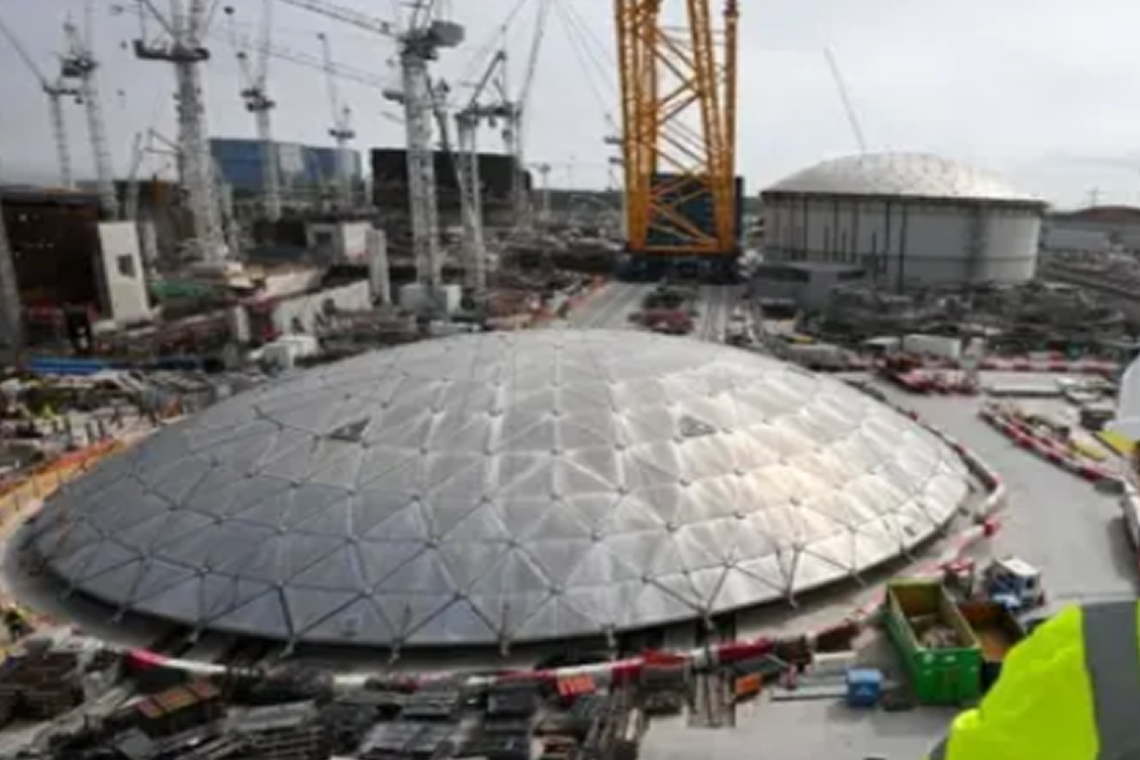The UK requires more nuclear energy to power the data centres necessary for artificial intelligence (AI), according to the head of the world’s largest cloud computing company.
Amazon Web Services (AWS), part of retail giant Amazon, plans to invest £8 billion in new data centres across the UK over the next four years.
Data centres are warehouses filled with computers that provide remote services such as AI, data processing, and streaming. A single data centre can consume as much energy as a small town.
Matt Garman, CEO of AWS, told the BBC that nuclear energy is a "great solution" for powering data centres, describing it as an excellent source of zero-carbon power available around the clock.
AWS is the world’s largest corporate buyer of renewable energy and has funded more than 40 renewable solar and wind farm projects in the UK.
Currently, the UK’s 500 data centres use 2.5% of the country’s total electricity. By comparison, Ireland’s 80 data centres consume 21% of its total power. These figures are expected to rise to 6% in the UK and 30% in Ireland by 2030.
The organization responsible for the UK power grid estimates that by 2050 data centres will consume almost as much energy as all industrial users do today.
In an exclusive interview with the BBC, Matt Garman said future energy needs are a key consideration in AWS’s planning.
He explained that they plan years ahead and invest in advance. He believes new technologies will be necessary and that nuclear energy will play a significant role, especially when looking a decade ahead.
French company EDF is currently constructing a large nuclear plant at Hinkley Point in Somerset, and a decision is pending on building another at Sizewell in Suffolk. EDF’s UK Chair, Alex Chisholm, agrees with Mr Garman.
Chisholm told the BBC that data centre providers are turning to nuclear because they require a reliable and large supply of energy.
He added that building more plants like Hinkley Point C alongside small modular reactors (SMRs) can power Britain’s digital economy.
SMRs are smaller reactors roughly the size of a football stadium, unlike larger plants such as Sizewell or Hinkley Point.
Amazon is already collaborating with SMR companies in Washington and Virginia to develop this technology. It would be a natural customer for Rolls Royce, which is developing SMR designs in the UK.
A spokesperson from the Department of Energy Security and Net Zero told the BBC that modular reactors will have an important role in supporting energy-intensive sectors like AI. The government is also revising planning rules to make building nuclear power stations easier across the country.
However, SMR technology is still years away, and establishing new grid connections already takes several years.
Jess Ralston from the Energy and Climate Intelligence Unit said investors often face long waits for grid connections, which slows growth.
She noted that nuclear energy could meet data centres’ power needs, but very few SMRs have been built anywhere. Traditional nuclear power is also expensive and takes a long time to complete, so it may be some time before nuclear becomes a practical solution.
AI Regulation
AWS estimates that 52% of businesses are using AI in some form, with a new company adopting it approximately every minute. Mr Garman views this as positive.
He described AI as one of the most transformative technologies since the internet, likely to impact nearly every aspect of life.
While he understands the nervousness around AI, he said initial fear of new or complex technology is normal until people better understand it.
Mr Garman cautioned against international AI regulation. He explained that technology is advancing so rapidly that regulators may struggle to keep up.
He believes regulation might unintentionally achieve the opposite of what it intends. Nevertheless, he acknowledges the importance of responsibility in releasing AI.
He stressed that when developing such transformational technology, it is crucial to implement controls and safeguards to ensure AI benefits society rather than harms it. He added that he spends a great deal of time thinking about these responsibilities.
Found this article interesting? Follow us on X(Twitter) ,Threads and FaceBook to read more exclusive content we post.


